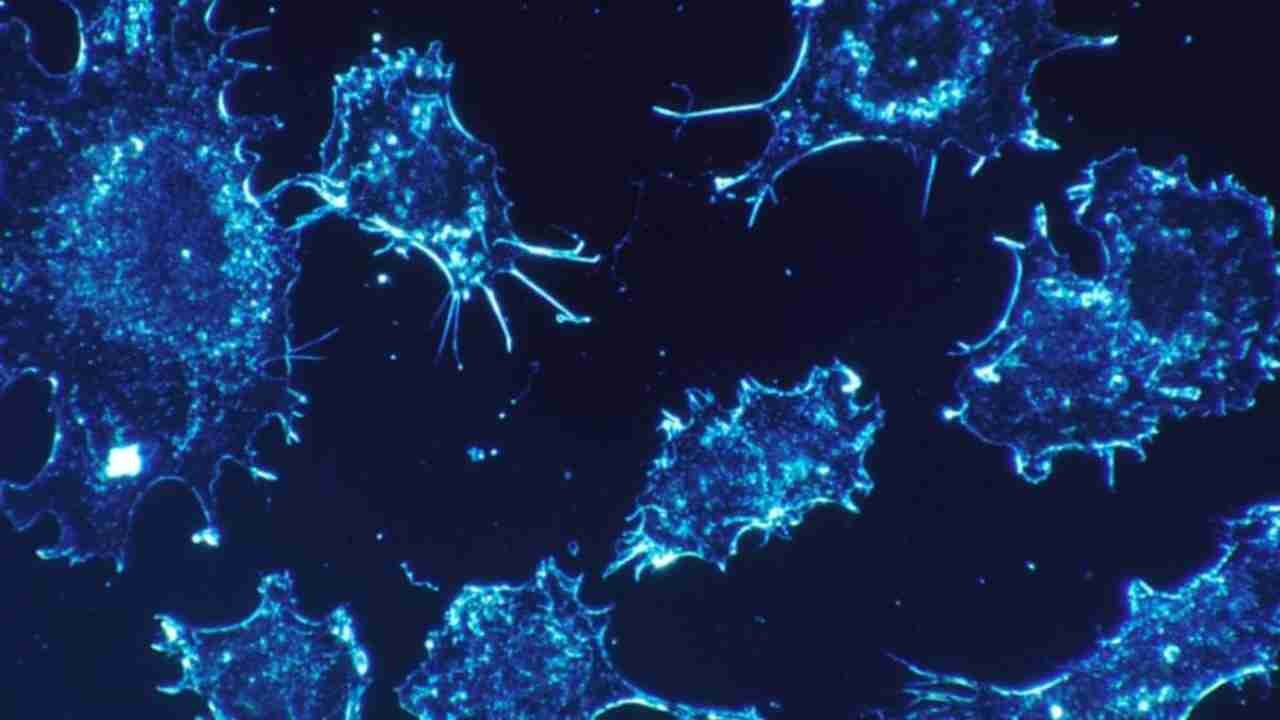The Hidden Danger: Post-Chemotherapy Cancer Cell Transformation
In the relentless battle against cancer, chemotherapy stands as one of the most potent weapons in our arsenal. It’s often hailed as a lifesaver, targeting and destroying cancer cells with remarkable efficacy. However, emerging research sheds light on a previously unrecognized risk lurking within the aftermath of chemotherapy: the potential transformation of once healthy cells into cancerous ones. A recent study conducted by the Tata Memorial Centre has unearthed startling findings, uncovering the intricate and alarming dynamics of post-chemotherapy cancer cell behavior.

The Study: Unveiling a Disturbing Phenomenon Led by a team of dedicated researchers, the study conducted at the esteemed Tata Memorial Centre aimed to delve into the effects of chemotherapy on cancer cells and neighboring healthy cells. What they discovered was both groundbreaking and disconcerting. Contrary to conventional wisdom, the aftermath of chemotherapy wasn’t merely a landscape of eradicated cancer cells; instead, it revealed a complex interplay with the potential to trigger a cascade of oncogenic transformations.
The Alarming Revelation: Cancer Cell Induced Transformation Central to the study’s findings was the revelation that dying cancer cells, post-chemotherapy, possess the ability to induce genetic alterations in neighboring healthy cells. This phenomenon, termed “cellular transmutation,” marks a significant departure from the traditional understanding of chemotherapy’s aftermath. Rather than passively succumbing to the toxic onslaught of chemotherapy drugs, cancer cells were found to wield a sinister influence, potentially corrupting nearby healthy cells and instigating their malignant transformation.
Unraveling the Mechanisms: Insights into Cancer Cell Communication At the heart of this transformative process lies the intricate communication network between cancer cells and their healthy counterparts. Through the release of molecular signals and the transfer of genetic material, dying cancer cells can effectively reprogram neighboring cells, nudging them down the path of malignancy. This insidious mechanism not only undermines the efficacy of chemotherapy but also raises profound questions regarding the long-term consequences for cancer patients.
Implications and Challenges: Rethinking Cancer Therapy The implications of these findings are profound, prompting a critical reassessment of current cancer treatment strategies. Beyond the immediate goal of tumor eradication, clinicians must now grapple with the unintended consequences of chemotherapy-induced cellular transmutation. The risk of secondary cancers arising from formerly healthy tissues underscores the urgent need for targeted therapies that mitigate this perilous transformation while preserving the integrity of healthy cells.
Conclusion: Navigating the Complexities of Cancer Treatment The Tata Memorial Centre study offers a sobering reminder of the multifaceted nature of cancer and the formidable challenges it presents to medical science. As we strive to push the boundaries of innovation in cancer therapy, we must remain vigilant to the hidden dangers lurking within our treatments. By unraveling the intricacies of post-chemotherapy cellular dynamics, we can forge a path towards more effective, personalized approaches that safeguard against the insidious threat of cancer cell-induced transformation, ultimately offering hope for a brighter future in the fight against cancer.
In a landscape where every discovery holds the potential to reshape our understanding, the journey towards conquering cancer is as daunting as it is essential. The Tata Memorial Centre study serves as a poignant reminder that, in this battle for life, knowledge is our most potent weapon.
FAQs about Post-Chemotherapy Cancer Cell Transformation
1. What is post-chemotherapy cancer cell transformation?
- Post-chemotherapy cancer cell transformation refers to the process where dying cancer cells, after exposure to chemotherapy, can influence nearby healthy cells, potentially leading to their transformation into cancerous cells.
2. How does chemotherapy affect cancer cells?
- Chemotherapy works by targeting rapidly dividing cells, including cancer cells, and disrupting their growth and division. However, it can also affect nearby healthy cells.
3. What is the Tata Memorial Centre study about?
- The Tata Memorial Centre study investigates the effects of chemotherapy on cancer cells and neighboring healthy cells, particularly focusing on the potential for cancer cell-induced transformation.
4. What did the study reveal?
- The study revealed that dying cancer cells can release signals or genetic material that may induce genetic alterations in nearby healthy cells, potentially leading to their transformation into cancerous cells.
5. What is cellular transmutation in the context of this study?
- Cellular transmutation refers to the process where dying cancer cells can influence neighboring healthy cells, causing them to undergo genetic alterations that may lead to cancerous transformation.
6. How do cancer cells communicate with healthy cells post-chemotherapy?
- Cancer cells can communicate with healthy cells through the release of molecular signals or the transfer of genetic material, initiating a complex interplay that can result in cellular transformation.
7. What are the implications of post-chemotherapy cancer cell transformation?
- The implications include the potential risk of secondary cancers arising from formerly healthy tissues and the need for reevaluating cancer treatment strategies to mitigate this risk.
8. Can post-chemotherapy cancer cell transformation be prevented?
- Research is ongoing to understand how to prevent or mitigate post-chemotherapy cancer cell transformation. Targeted therapies and personalized approaches may hold promise in addressing this challenge.
9. Are all chemotherapy drugs equally likely to induce cancer cell transformation?
- The propensity for chemotherapy drugs to induce cancer cell transformation may vary. Further research is needed to understand the specific effects of different chemotherapy agents.
10. Can post-chemotherapy cancer cell transformation occur in all types of cancer?
- Post-chemotherapy cancer cell transformation may occur in various types of cancer. The extent and mechanisms of transformation may differ depending on the cancer type and individual factors.
11. How common is post-chemotherapy cancer cell transformation?
- The prevalence of post-chemotherapy cancer cell transformation is still being studied. Its frequency may vary depending on various factors, including the type of cancer and treatment regimen.
12. Are there any warning signs of post-chemotherapy cancer cell transformation?
- Warning signs may include the development of unusual symptoms or the recurrence of cancer-like manifestations in previously treated areas. Regular follow-ups with healthcare providers are essential for monitoring and early detection.
13. Can post-chemotherapy cancer cell transformation occur years after treatment?
- Yes, post-chemotherapy cancer cell transformation may manifest years after treatment. Long-term surveillance and monitoring are crucial for detecting potential late effects of chemotherapy.
14. Is there a genetic predisposition to post-chemotherapy cancer cell transformation?
- Genetic factors may influence an individual’s susceptibility to post-chemotherapy cancer cell transformation. Research is ongoing to elucidate the role of genetics in this phenomenon.
15. How does post-chemotherapy cancer cell transformation affect survivorship rates?
- Post-chemotherapy cancer cell transformation can impact survivorship rates by increasing the risk of secondary cancers or complicating treatment outcomes. Long-term studies are needed to assess its impact comprehensively.
16. Can lifestyle modifications reduce the risk of post-chemotherapy cancer cell transformation?
- Adopting a healthy lifestyle, including maintaining a balanced diet, regular exercise, and avoiding known carcinogens, may help reduce the overall risk of cancer, including post-chemotherapy transformation.
17. What are the challenges in researching post-chemotherapy cancer cell transformation?
- Challenges include understanding the complex mechanisms involved, identifying biomarkers for early detection, and developing targeted interventions to prevent or mitigate transformation.
18. How can patients advocate for themselves regarding post-chemotherapy cancer cell transformation?
- Patients can advocate for regular follow-up appointments, discuss any concerns or symptoms with their healthcare providers, and stay informed about ongoing research and developments in cancer care.
19. Are there alternative treatments to chemotherapy that may pose lower risks of cancer cell transformation?
- Alternative treatments, such as immunotherapy or targeted therapy, may offer different risk profiles compared to traditional chemotherapy. However, the suitability of these treatments depends on individual factors and cancer characteristics.
20. What steps are being taken to address the implications of post-chemotherapy cancer cell transformation?
- Researchers are investigating novel therapies, biomarkers for early detection, and personalized treatment approaches to address the implications of post-chemotherapy cancer cell transformation and improve patient outcomes.
Register for My Upcoming Masterclass HERE
See You in the Live Masterclass
Sunil Chaudhary stands as a preeminent global Leading digital coach, boasting a diverse clientele hailing from over 50 nations. Renowned for his prowess as an exemplary SEO expert, business automation coach, and landing page authority, Chaudhary also holds the distinction of being esteemed as the finest business coach in India. Beyond technical domains, he imparts invaluable insights into mindset, success, and life skills, thus encompassing a holistic approach to mentorship.
Join FREE Courses HERE
Know The Author:
 Sunil Chaudhary aka Suniltams Guruji is India’s Leading Digital Coach. He provides complete Digital Skill Development Coaching with great support. Sunil has trained more than 25000 students and helped more than 1100 businesses so far. Sunil is a well-known face across the world for Digital Coaching.
Sunil Chaudhary aka Suniltams Guruji is India’s Leading Digital Coach. He provides complete Digital Skill Development Coaching with great support. Sunil has trained more than 25000 students and helped more than 1100 businesses so far. Sunil is a well-known face across the world for Digital Coaching.Digital Success Coach | Best SEO Coach India | Mindset Coach | Life Success Coach













